Friends, rather than selling and shipping seeds, we now share seeds as an embodied gift practice. Learn how to receive seeds from us & here are our FAQs.
Sibley Winter Squash
HEIRLOOM Had we but one winter squash to grow, Sibley Winter Squash would be the one. Her flavor is magnificent, texture sublime, productivity off the charts and we enjoy them consistently through the following summer. Her 5 to 8-pound baby blue fruits have been lifted up by the Slow Food Ark of Taste, just be sure she’s well cured and then don’t invite her to supper ’til January! Her flavors deepen and sweeten with time and Friends, it is so worth the wait.
We love her Rochester roots, too! We are grateful for millennia of indigenous seedkeeping laying the foundation of everything we eat today; in 1887 the Rochester seedhouse Hiram Sibley & Company, shared Sibley with their community. We’re grateful to carry on the tradition!
In 2015, we had the distinct pleasure of visiting our dear friend and mentor Patrice Fortier of the marvelous seed company La Societe des Plantes in Quebec. There in the center of his kitchen table lay a gigantic and gorgeous Sibley without a thought of rotting. It was June 16th. So yes we love Honeynut and what we do without Delicata; but truly, we cannot imagine life without the delicious resilience of Sibley .
Organic Sibley Winter Squash
Planting Method: Direct Sow or Transplant
To Direct Sow: After last frost, sow 2 seeds every 3-4 feet in rich soil, thinning to one.
For Transplanting: Start seedlings 3 weeks before final frost in peat pots or soil blocks for minimal root disturbance. Transplant after last frost.
Plant care: Plant with plenty of rich compost and allow for them to vine up fencing. Protect from cucumber beetle with floating row cover – remove when the plants start flowering.
Seed Depth: 1 inch Days to Germination: 5 days at 80°F
Sun Needs: Full
Spacing (after thinning/transplanting): 3-5 feet
Days to Harvest: 115 days to winter squash
Harvest: Harvest just before fall frost and cure in a warm, dry place for two weeks. To maximize storage life, keep in a cool, dry place all winter.
Fruition’s Growing Guide
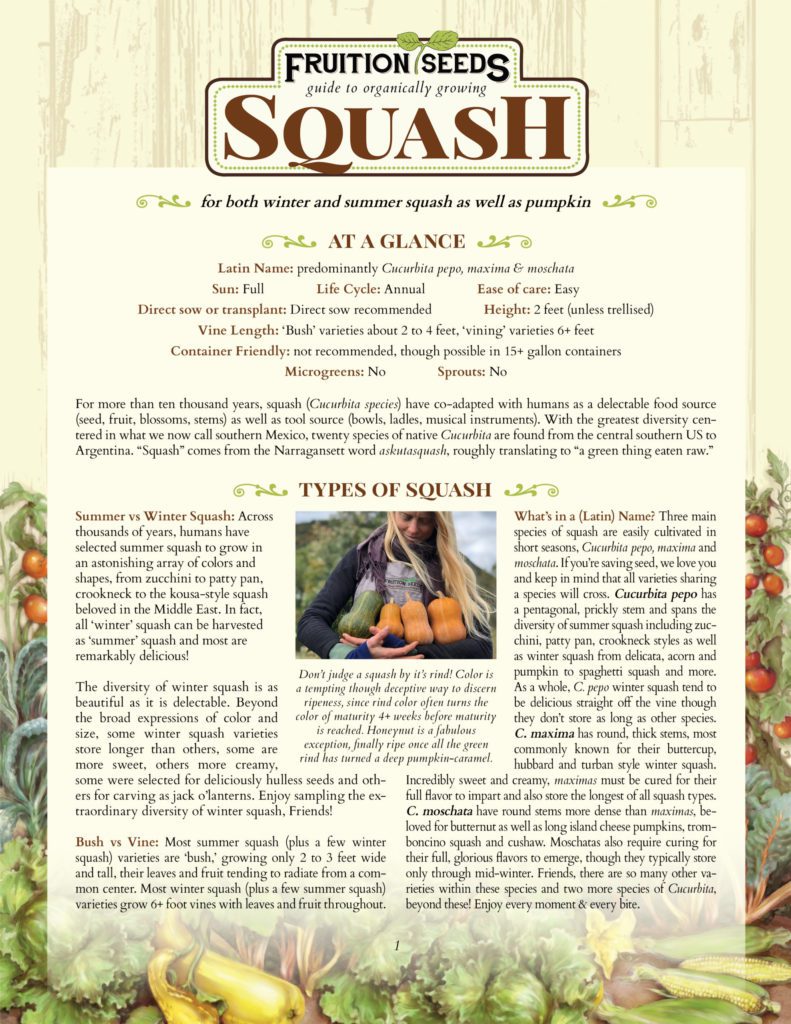

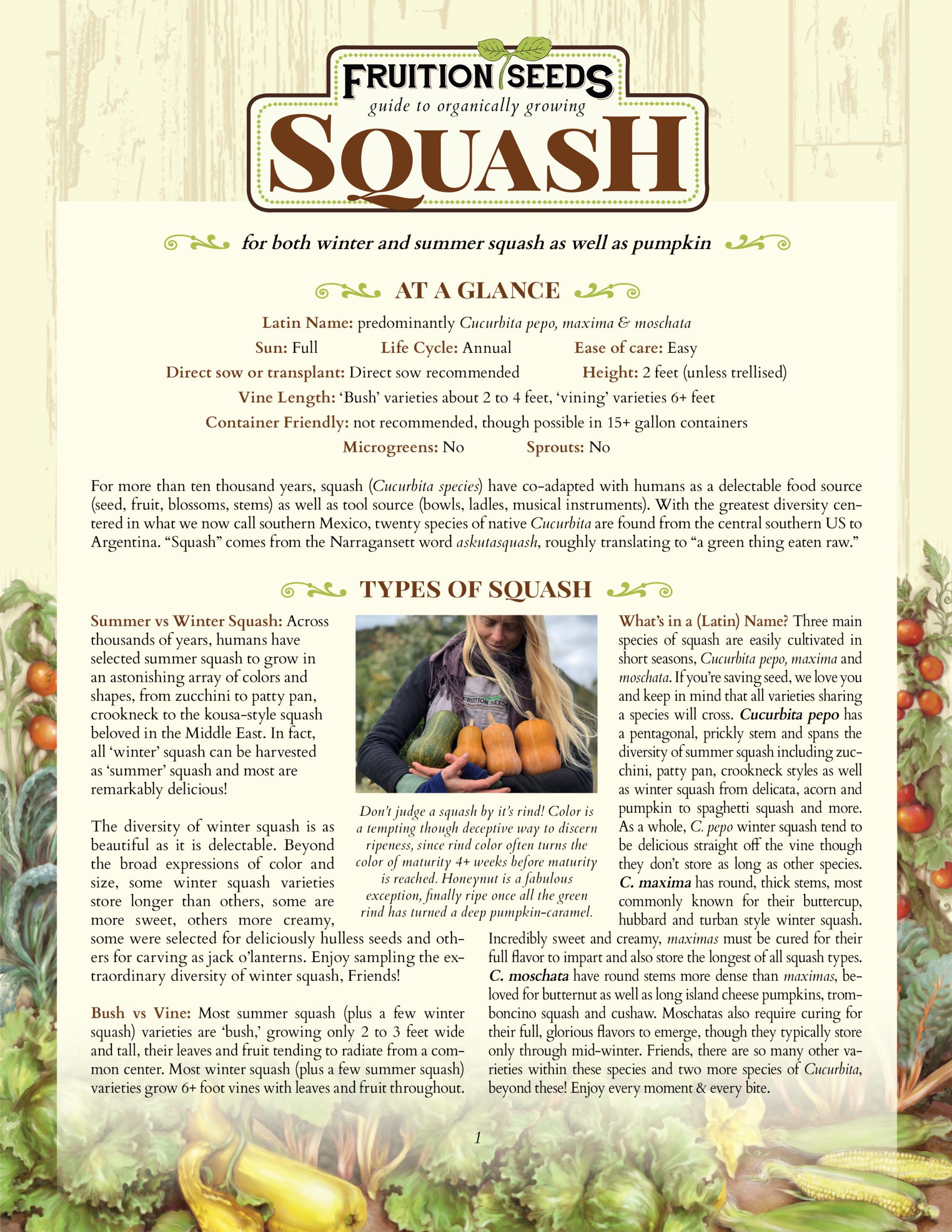

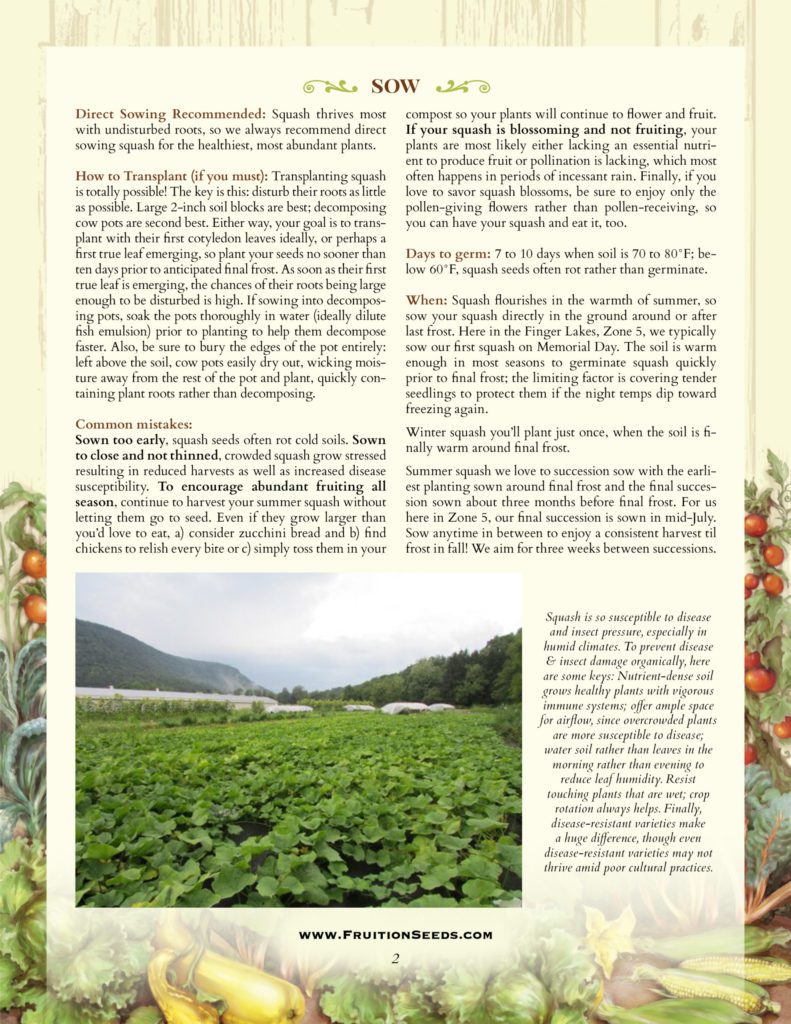

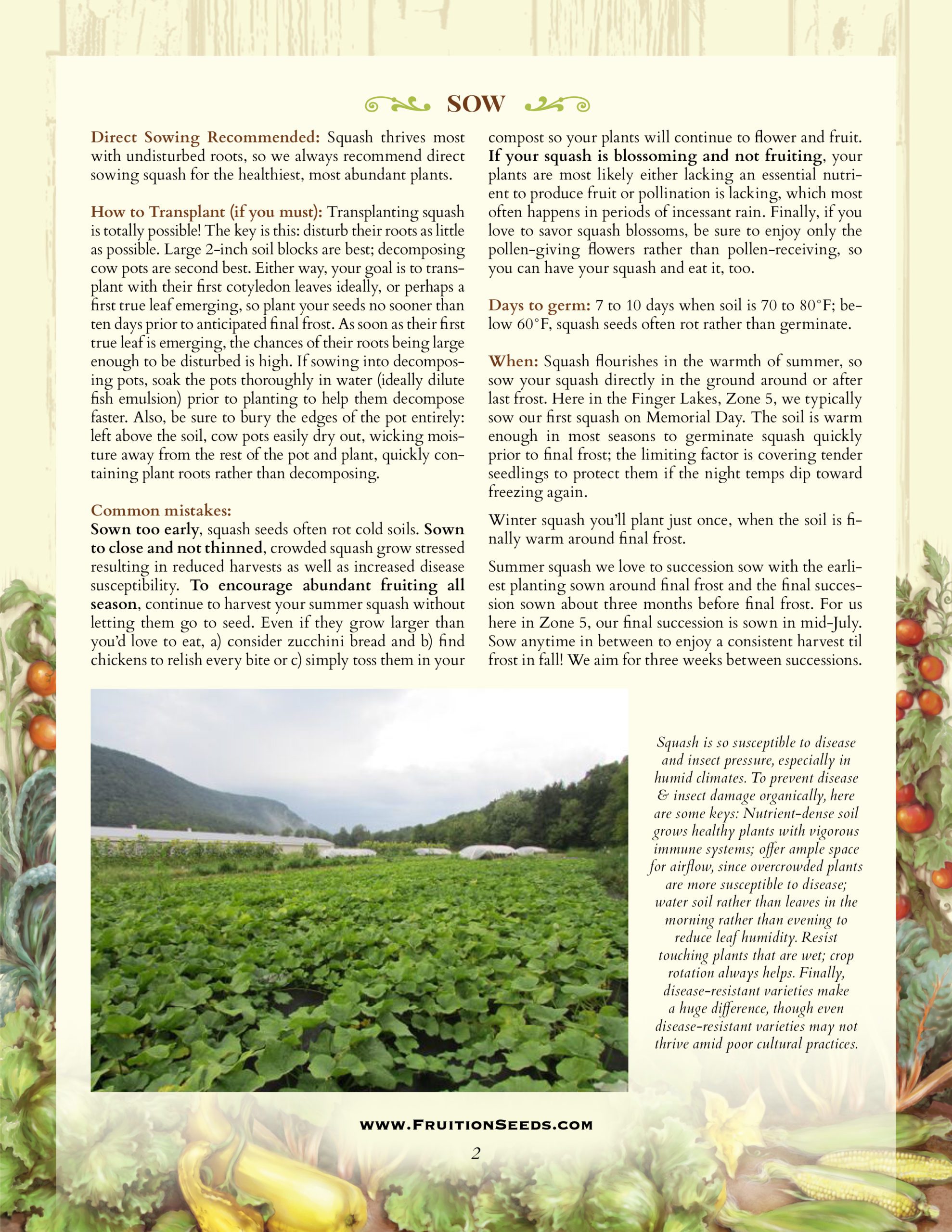

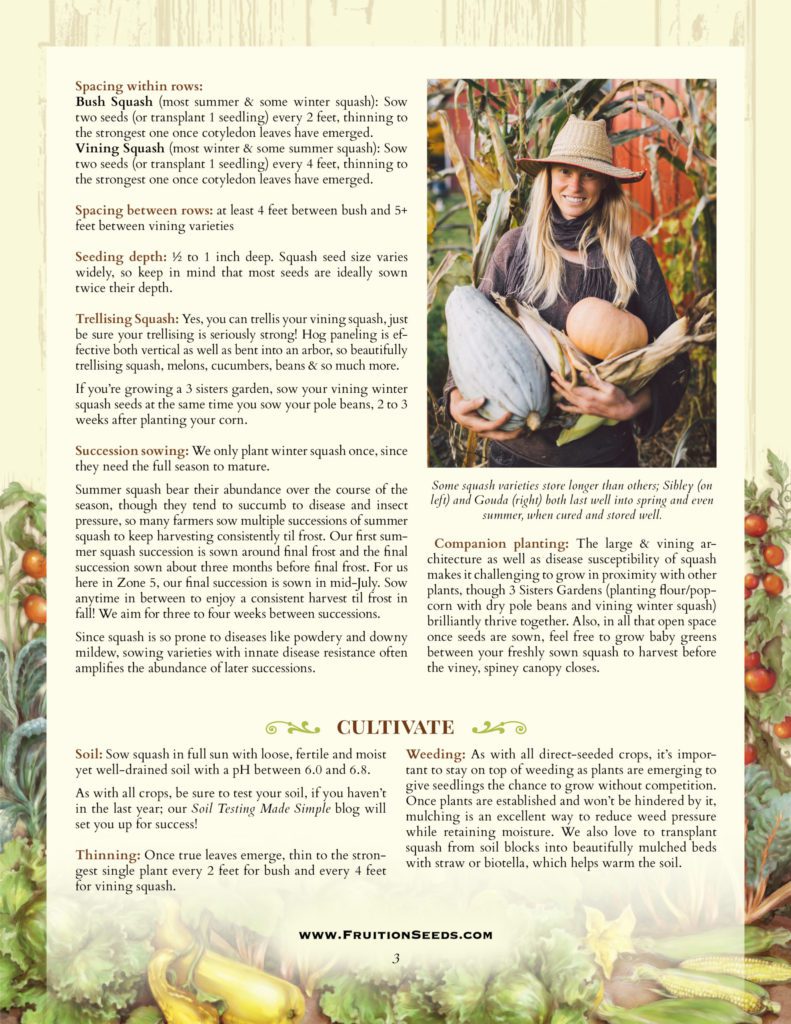

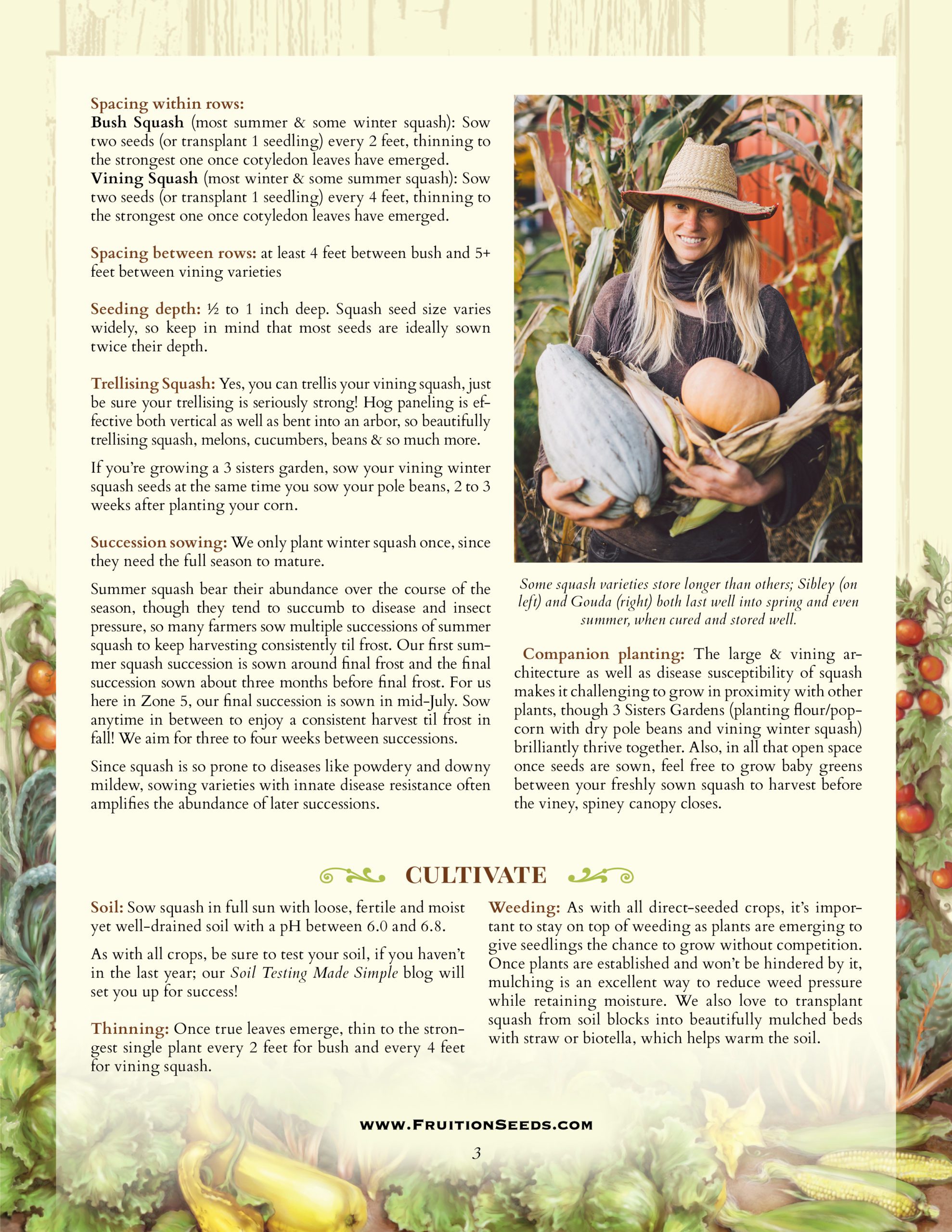

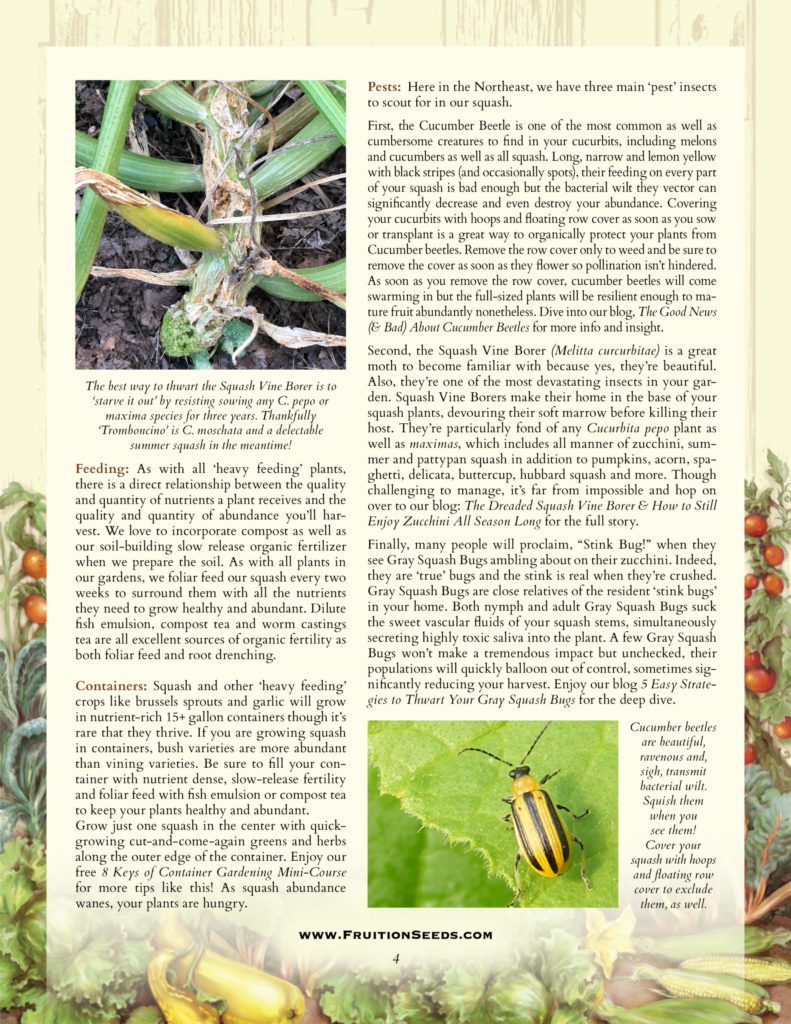

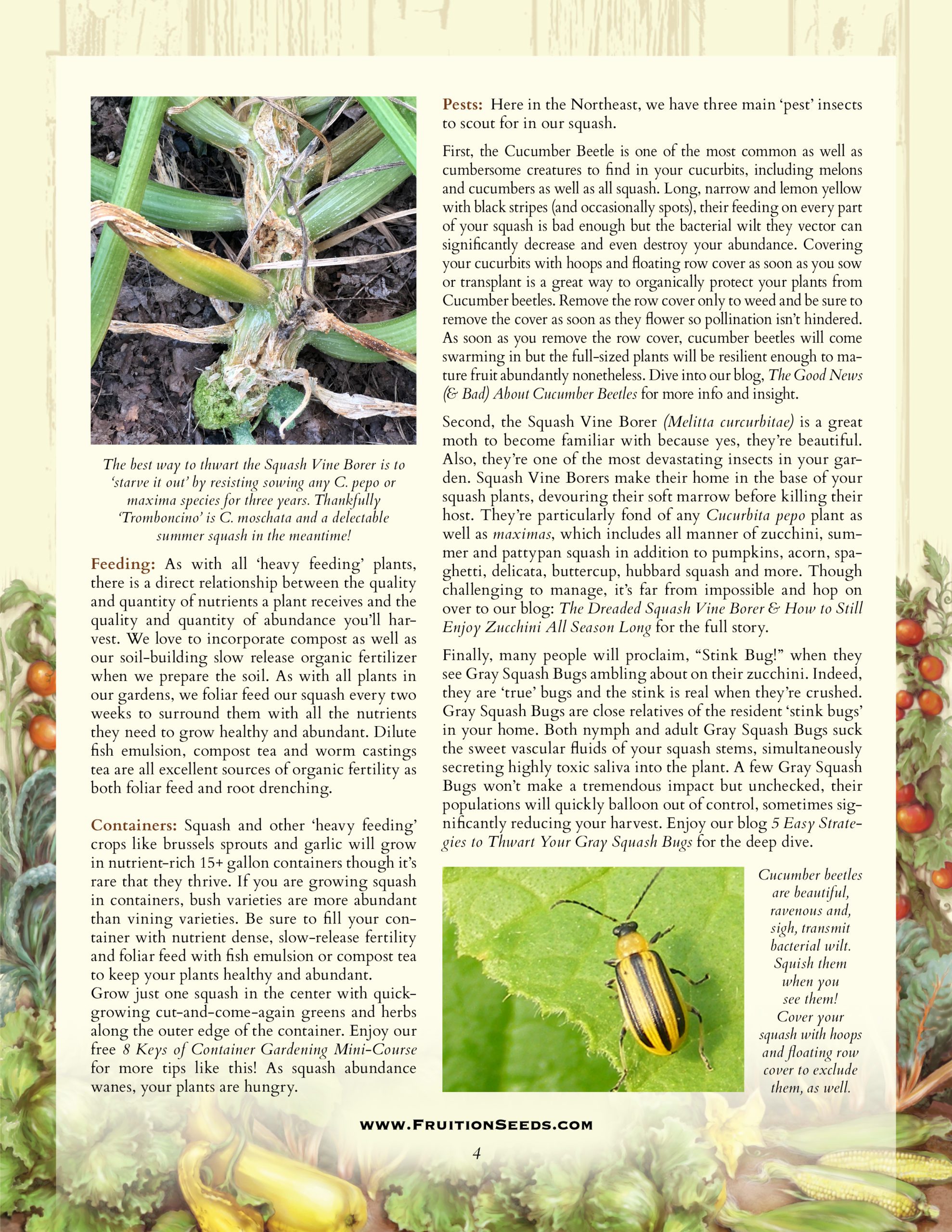

Videos
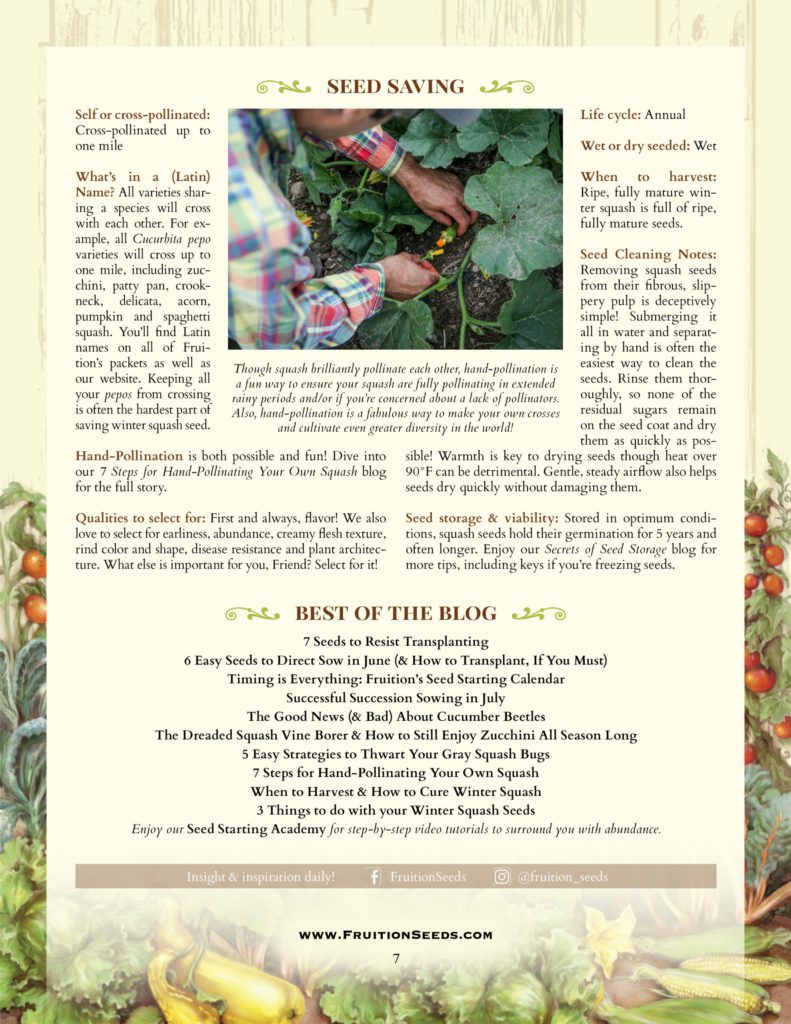

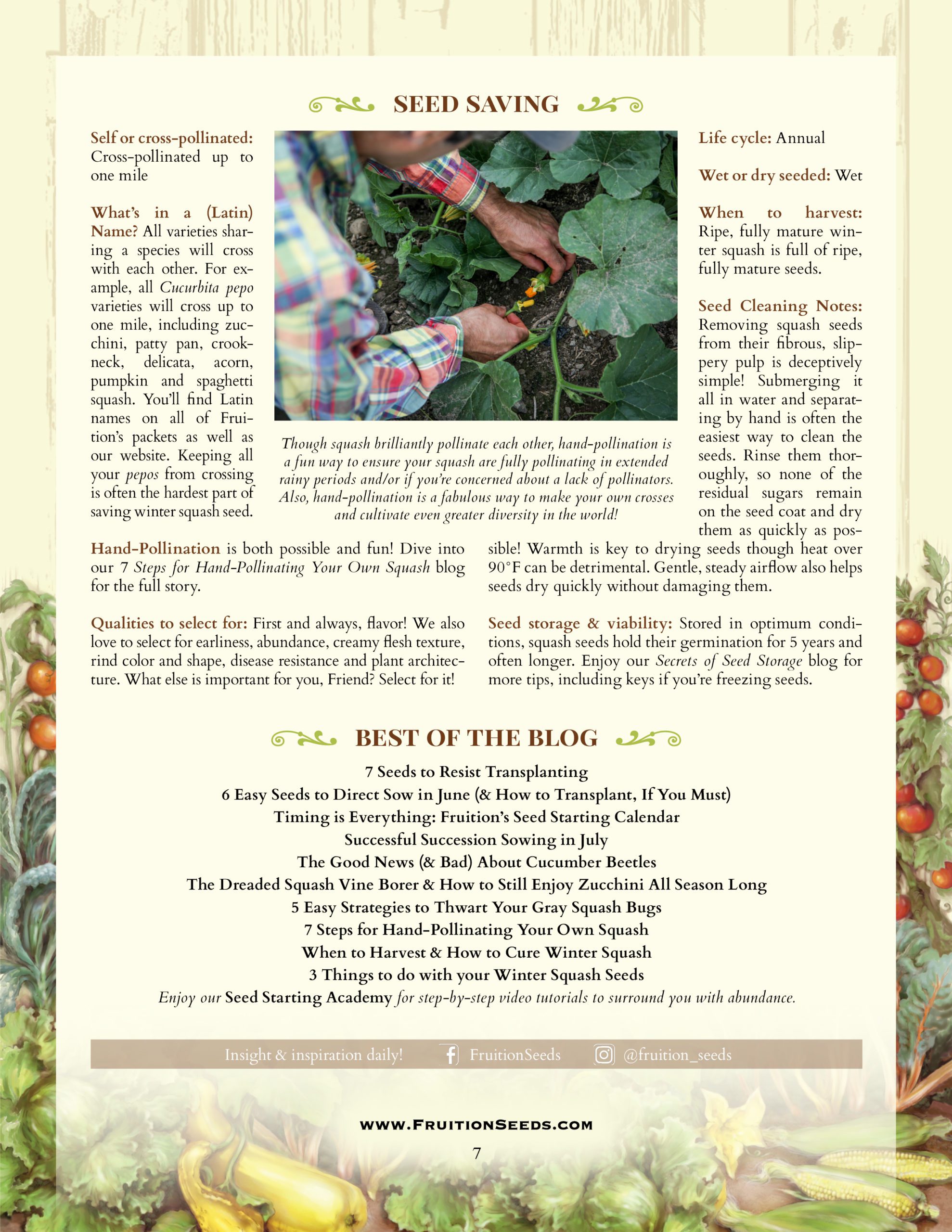


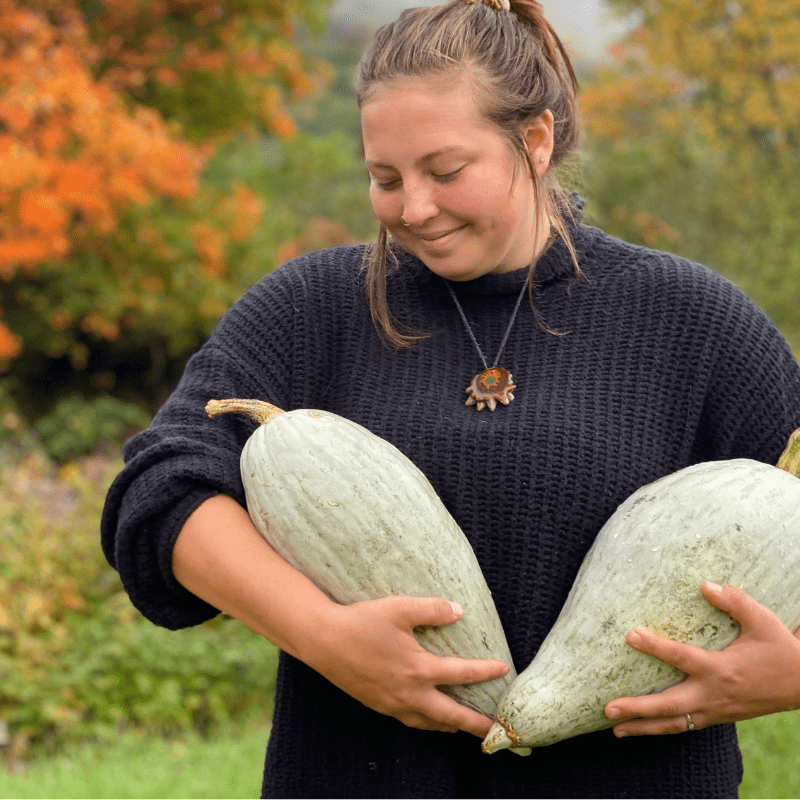

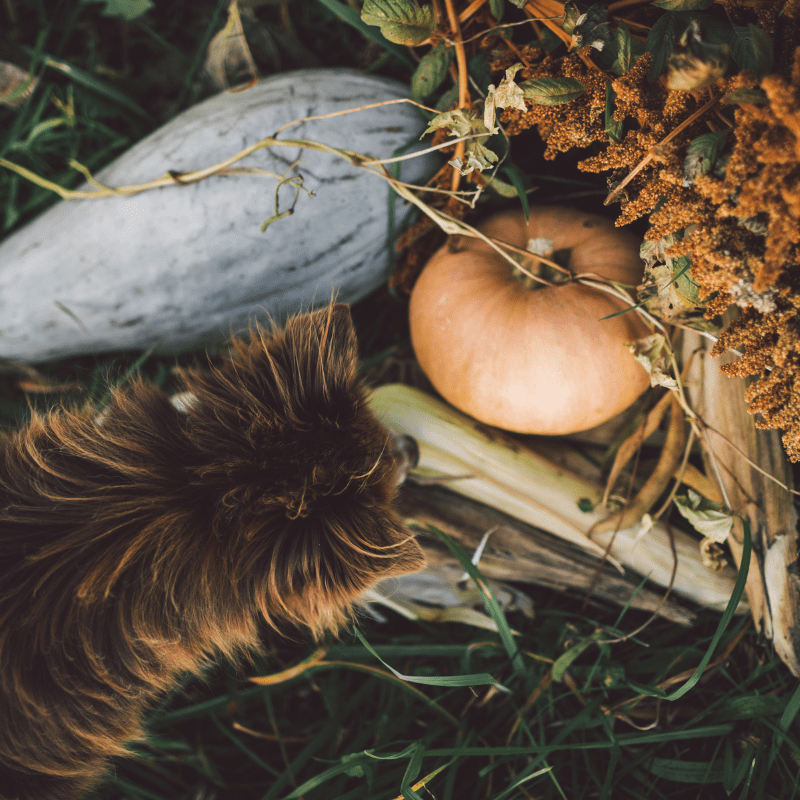
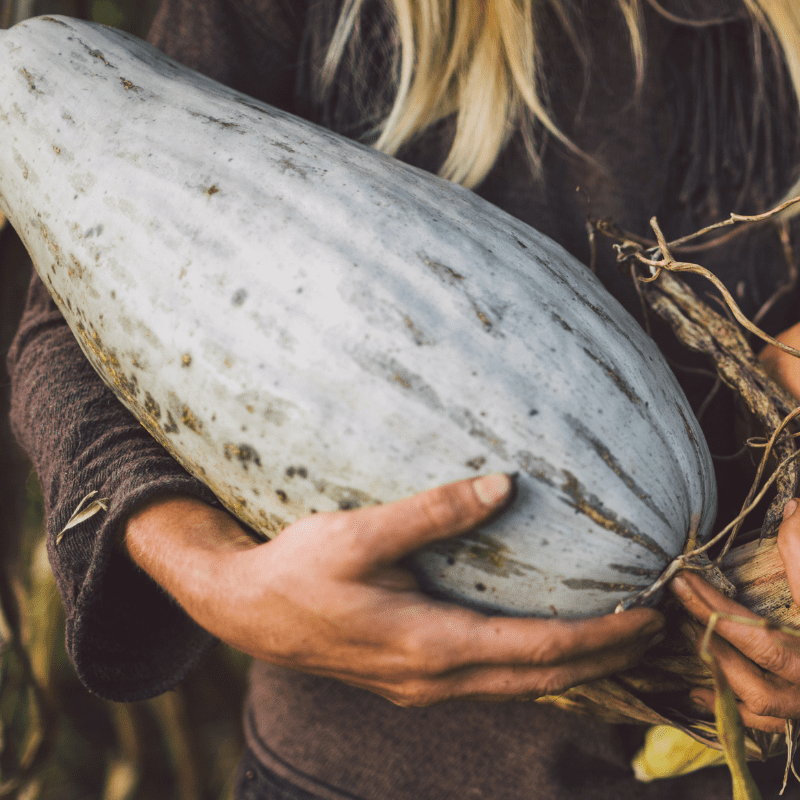
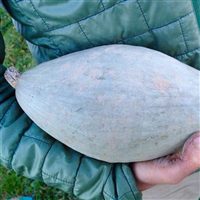
blackbirdpines (verified owner) –
Decimated by vine borers in July. Not a great squash for WNY.
Maddie –
We are grateful for you sharing your reflections with us and the Fruition community, and truly sorry to hear that you haven’t found abundance and delight in this experience. Apologies that we are just now getting you a reply — we are responding to a backlog in product reviews, and iterating our teamwork to ensure we are consistently and quickly responding with care to reviews, now and in seasons to come. We appreciate your patience alongside your feedback!
Surrounding you with beauty and abundance is why we do what we do– one way or another, we would love to see you find more delight this season! We have reached out to you directly by email to joyfully provide you with a coupon for a free packet of seed. Please feel free to read our Satisfaction Guarantee and email support@fruitionseeds.com should you wish to reach out any time in the future. Thanks for growing with us!
And p.s.! Friends, while we are on the subject, for anyone reading who may be finding challenges with the dreaded squash vine borer, we invite you to check out our blog and video on “”The Dreaded Squash Vine Borer…””. While it’s true that the thick stems of moschata-species squash (Honeynut, for instance) are more resistant to squash vine borers, in the blog we gladly share the tricks we use to prevent squash vine borer feasts here at Fruition.